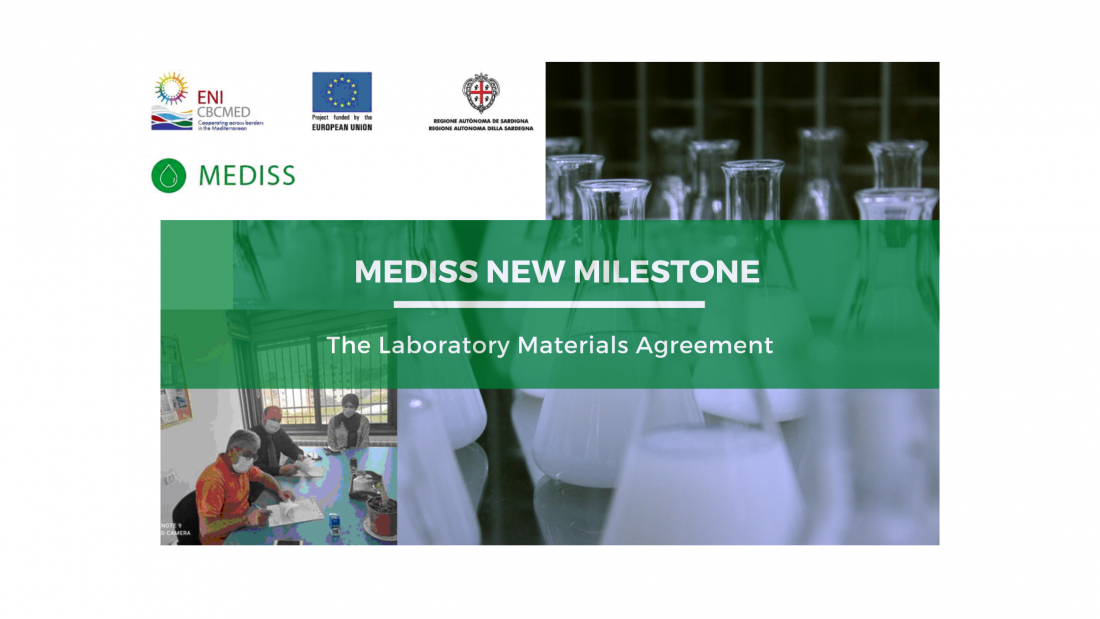MEDISS new milestone: the Laboratory Materials Agreement for water testing

Palestinian Wastewater Engineers Group (PWEG), MEDISS Lead Partner, after a series of tender procedures, has signed an agreement to purchase and supply laboratory equipment for water testing to find the best blending ratio of treated wastewater and brackish water.
To fully understand this important milestone, it is useful to recall the context in which MEDISS takes place.
Limited water availability is a problem shared by many Mediterranean countries, with remarkable differences among them. Southern and Eastern countries suffer from “structural shortage” of water that results in higher pressure on the most important water source: groundwater. Over pumping and exploitation, coupled with climate change and lower rainfall rate, has led to groundwater tables* receding, saline intrusion and diffused salinity, with negative effects on agricultural production, limiting crops to those who can withstand salinity and a resulting shift from high value crops to lower value ones.
MEDISS addresses the issue of improving the quality of saline groundwater present in the Mediterranean region opening up alternative irrigation for higher quality and more diversified cultivations. According to the features and specific needs of the partner areas, MEDISS tests innovative solutions in use of treated wastewaters and desalination of brackish water. In Palestine, MEDISS is focused on treated wastewater blending with wadi water and brackish groundwater.
The water blending test results will provide the necessary information for a correct approach for managing water and agricultural resources during the MEDISS implementation phase and beyond in Palestine with the objective to help Palestinian farmers to increase and have better quality and quantity of water for irrigation.
MEDISS pilot plant in Palestine will be located in the north-east area of the city of Jericho, in the middle of the Medjul date farms, near the wadi Quilt. It is an agricultural area most of it cultivated with Medjul date palms. The plant is intended to store and blend nonconventional water: saline water and treated wastewater. Irrigation pilot area estimated: 400 ha.
We close with this suggestion from UN Food and Agriculture Organization (FAO) “Whatever the source of non-conventional water, it must be an element in a broader water management approach encompassing demand management and strategies for supply and conservation. The economics of using non-conventional water relative to other sources, and the development of an implementation strategy, including capacity building, are vital because good management is essential for its safe use in agriculture.”
Do follow us to see how MEDISS is following this suggestion.
* Water table, also called groundwater table, upper level of an underground surface in which the soil or rocks are permanently saturated with water. The water table separates the groundwater zone that lies below it from the capillary fringe, or zone of aeration, that lies above it. The water table fluctuates both with the seasons and from year to year because it is affected by climatic variations and by the amount of precipitation used by vegetation. It also is affected by withdrawing excessive amounts of water from wells or by recharging them artificially. (Encyclopedia Britannica)









